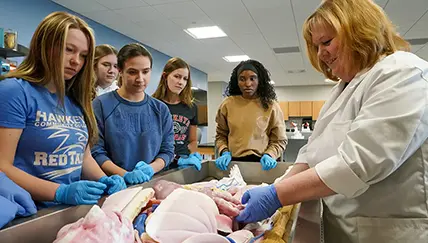This nationally-recognized group is designed for individuals pursuing careers in business management, human resources, office administration, information technology, and other related fields.
As a member of Hawkeye’s chapter, you gain access to leadership conferences, guest speakers, field trips, and more.
You practice your organization and soft skills while forming close connections with other students - and having a lot of fun!
Learn more about Business Professionals of America







